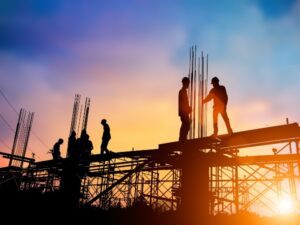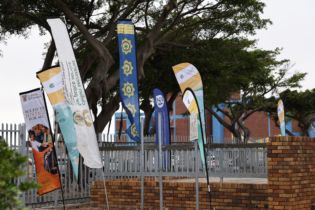Globally trusted infrastructure firm AECOM is showcasing a diverse range of projects that support women and children in line with Women’s Day on 9 August. The theme for 2022 is ‘Generation Equality: Realising Women’s Rights for an Equal Future’.
Generation Equality is a global campaign linking South Africa to global efforts to achieve gender equality by 2030. According to UN Women, this involves adopting and strengthening sound policies and enforceable legislation to promote gender equality and the empowerment of all women and girls at all levels. This ties in with AECOM’s own Sustainable Legacies strategy, the second phase of which was launched in May 2022. The strategy integrates four key pillars that embed sustainable development and resilience across the company’s work, improve social outcomes for communities, achieve net-zero carbon emissions, and enhance its governance. AECOM globally continues to make progress on gender diversity targets, with 33% of its total workforce being women, with a target of +35%, and 18% women in leadership roles, with a target of +20%. In South Africa specifically, the total company workforce is just over 40% female at present. AECOM has also set non-gender diversity goals across the business for 2022, in addition to undertaking an external Equality, Diversity & Inclusion accreditation process. READ MORE: AECOM ready to help get R100bn Infrastructure Fund off the ground “As a trusted partner to our clients, our commitment to Environmental, Social, and Governance (ESG) is not only core to what we do, it also plays a large role in leading our industry towards a more sustainable and equitable future,” says Elisabeth Nortje, Associate Director – Environment, Africa at AECOM. Elisabeth points to the work that AECOM is carrying out in terms of an Environmental and Social Management Framework (ESMF) as part of a larger feasibility study for a Market Driven Irrigated Horticulture Project in Lesotho. The project is being facilitated by the Millennium Challenge Corporation (MCC), in partnership with the Lesotho Millennium Development Agency (LMDA), as part of the Lesotho II Compact between the United States of America, acting through the MCC, and the Kingdom of Lesotho. The Compact was signed on 12 May 2022. The objectives of the project are to increase rural incomes related to commercial horticulture, including for women, youth, and the rural poor, and establish a sustainable and inclusive model of irrigation, water resource, and land management. Elisabeth says that many issues associated with the project have been funnelled through the ESMF, with a major theme being gender inclusion. Other themes are livelihood diversification, integrated catchment management, climate change and training and capacity building.READ MORE: AECOM ready to help get R100bn Infrastructure Fund off the ground
“A gender transformative approach is being applied throughout the project with the aim of ensuring its sustainability,” says Elisabeth. Another project showcasing Generation Equity is the Green School South Africa in the Drakenstein Valley near Paarl in the Western Cape. “This net zero project not only has a minimal impact on the environment, but also preserves precious natural resources for the benefit of the local community,” says Professional QS Mathapelo Nchabeleng. The procurement phase of the project utilised local resources wherever possible. Green School South Africa is boosting education opportunities for children in the area. It has an extremely strong focus on sustainability. For example, it produces 105% of its own electricity consumption, thus giving back to the grid. It uses less water than what the site naturally receives per year in terms of rainfall, hence topping up the groundwater aquifers. It is a zero waste-to-landfill site, even taking in waste from neighbours and the community so as to have a net positive impact on waste to landfill. The construction process ensured that no materials on-site had any Red List ingredients, including the manufacturing process. Endemic flora was re-established in the gardens to boost the biodiversity of not just the site but the entire area. Finally, the project incorporated vegetable gardens, a fruit forests, medicinal gardens, and herbal corridors in the campus landscape. The school day includes growing, caring for and harvesting – all with the aim of re-establishing people’s connection to the land and food. Leoni Malherbe, Chief Structural Draughtsperson: Bridges, outlines the extensive community impact of AECOM’s upgrade of the R537 for its client, the South African National Roads Agency SOC Ltd. (SANRAL). The project stipulated a 30% Contract Participation Goal (CPG) target, itself allocated to minimum percentages for targeted labour and women and youth, in addition to enterprises with a greater than 51% ownership by these groups. There was also a range of Community Development Projects (CPD) associated with the main works with similar minimum requirements. SANRAL provided project information to various stakeholders and community members by hosting ongoing community information sessions. This forms part of its mandate is to drive economic development through the provision and maintenance of critical infrastructure. “ESG considerations are particularly important due to the long-term nature of infrastructure investments. Success today is much more than delivering on time and on budget, as it is also about responding to clients’ needs and embedding considerations of social equity, economic justice, environmental sustainability, and resilience into any work undertaken to achieve the best outcomes for communities and the planet,” concludes Elisabeth.






